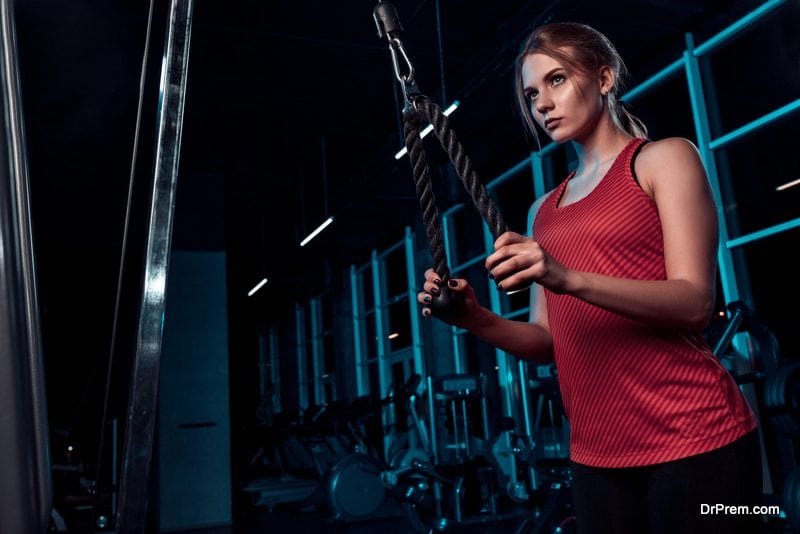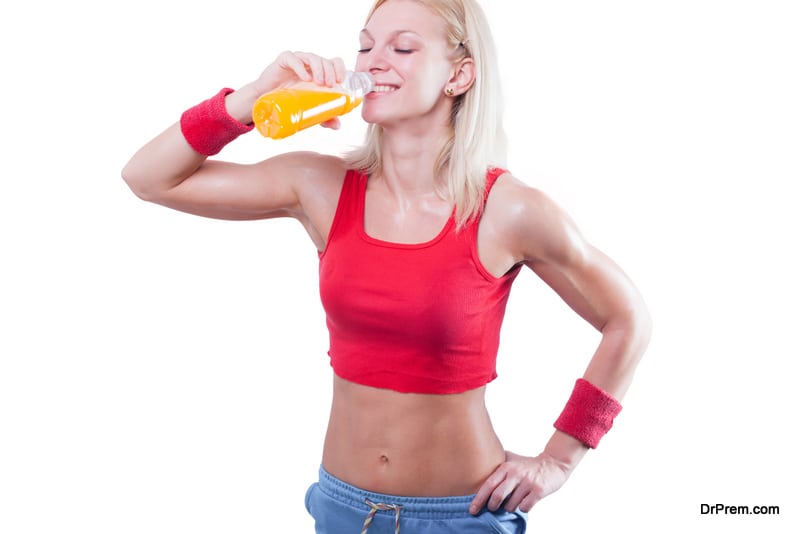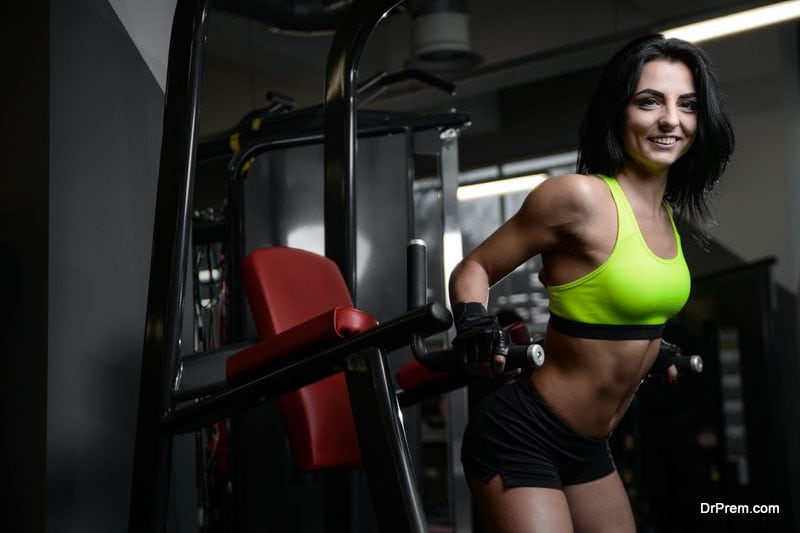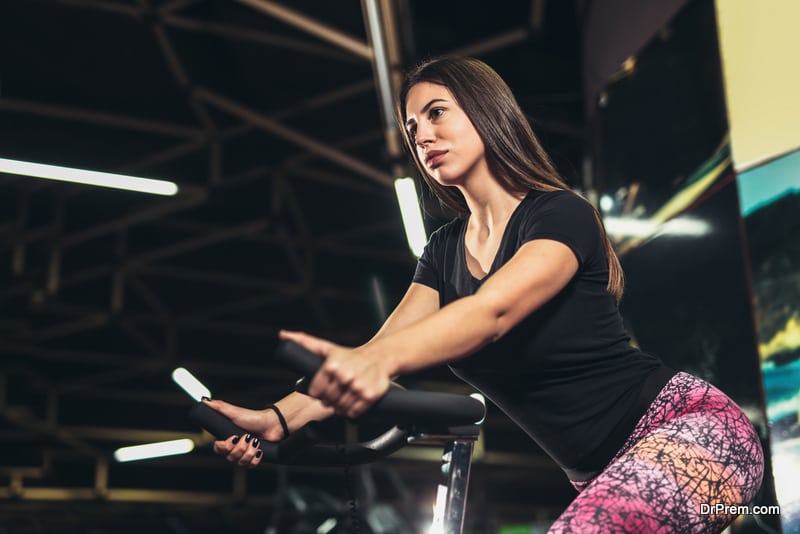The gym seems fairly simple on paper – you go, exercise and head back home for a nice warm shower. However, it can be very intimidating once you realize how much of an impact trends, gear and clothing can have on the environment around you: it can be really difficult to know where to start.
Thanks to some experts from Peak Body we’ve brought you a beginner’s checklist for starting the gym that you might find useful for the first few weeks of your workouts.
Comfortable clothes
 You’ll often see other people working out in expensive, flashy gear that looks tailor-made for their body type. Don’t worry about having to splash out for your own set: wear whatever’s comfortable, not what people say you should. Exercise is about improving yourself on your own terms, so you’ll want to wear clothes that you feel confident and relaxed in.
You’ll often see other people working out in expensive, flashy gear that looks tailor-made for their body type. Don’t worry about having to splash out for your own set: wear whatever’s comfortable, not what people say you should. Exercise is about improving yourself on your own terms, so you’ll want to wear clothes that you feel confident and relaxed in.
If you’re looking to lose weight and build up muscle, remember that your clothes might not fit your new body type in the future – start looking into new outfits whenever you feel your current one getting too loose or tight.
Safe, reliable shoes
Almost all kinds of exercise put more stress and weight on your footwear, so you’ll usually see them wearing out much faster. Your exercise shoes should be reliable and comfortable without any impact on your mobility or speed, while also being cheap or widespread enough to replace on a whim.
Remember: like clothes, your shoes should be whatever suits you best, so replacing them with an identical pair is a huge priority if they break. If you absolutely have to go for something stylish, something like Remonte shoes are an excellent choice – under the surface, they’re still the same shoes everybody else in the gym will be using.
Food and drink
 Some gyms won’t really allow eating, and others will prefer you to use the water they provide (or sell), but it’s important to stash something in your bag, even if it’s just water and a small sandwich or pack of snack bars. Exercising will usually leave your body dehydrated and desperate for nourishment, so having something you can eat on the way to the car or just outside the gym door will make a big difference.
Some gyms won’t really allow eating, and others will prefer you to use the water they provide (or sell), but it’s important to stash something in your bag, even if it’s just water and a small sandwich or pack of snack bars. Exercising will usually leave your body dehydrated and desperate for nourishment, so having something you can eat on the way to the car or just outside the gym door will make a big difference.
It’ll also stop you from “rewarding” yourself with an unhealthy fast food meal – if you can fill up before you leave, you won’t be hungry on the way home.
Supplements
Supplements aren’t cheating – in many cases; they can be a legitimate way to give your body the resources it needs to grow in certain ways. For example, protein powder and soya proteincan help you recover faster after a workout, whereas some energy supplements give you a pre-workout boost that’ll keep you going for longer.
This applies to your out-of-gym routine, too. If you’re using supplements to get extra nutrients and natural energy, make sure you’re sticking with them long-term: taking them “whenever you feel like it” can really throw off your diet and exercise rhythm.
Recovery items
 Winding down from a workout can be as difficult as building up to it, so having a constant supply of relaxation aids makes a huge difference. Your body needs time to rest and repair itself for the next workout, but the adrenaline from the exercise can make it difficult to relax and give yourself some time to heal.
Winding down from a workout can be as difficult as building up to it, so having a constant supply of relaxation aids makes a huge difference. Your body needs time to rest and repair itself for the next workout, but the adrenaline from the exercise can make it difficult to relax and give yourself some time to heal.
Any kind of muscle massaging tools can be incredibly useful, as can bath additives and foot massage pads. Compression clothing is more specialized but gives your body a chance to move blood where it’s needed faster. You might have difficult in carrying all these but by carrying a specifically designed gym bags for men or women, you can accommodate them all easily.
Article Submitted By Community Writer




